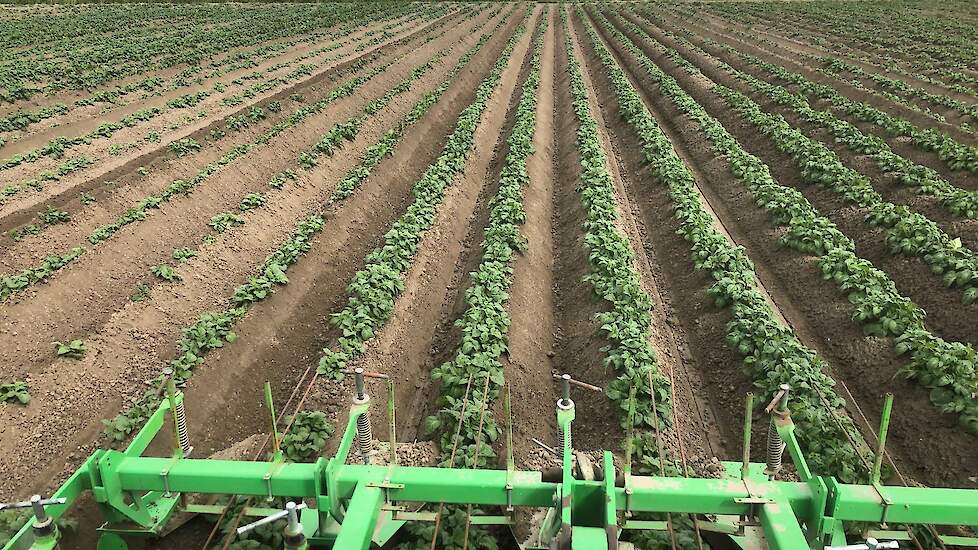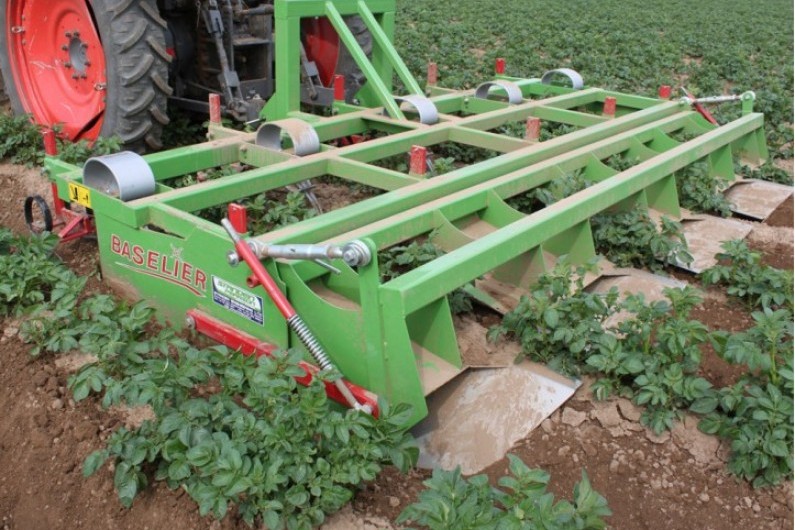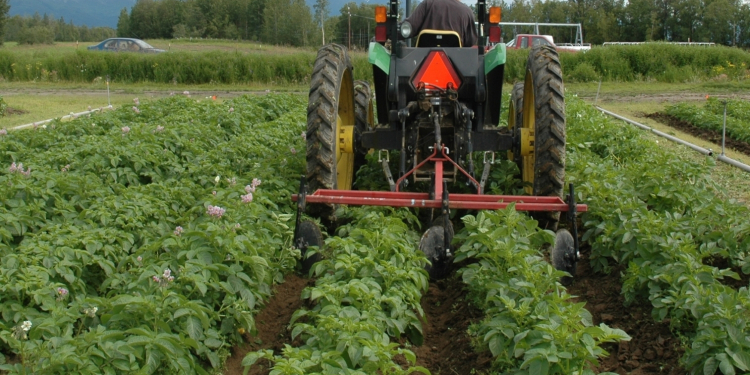
Looking back at 2020, I am quite a satisfied farmer. Sure, we had to deal with corona in the world and that had consequences for our business, but on the whole I can say that quite a lot of things went well. We are leading the way in a number of areas, but I regret to discover that there is no market for that yet.
In 2020 we have taken the path to less chemicals, certainly in the potatoes that we sell directly to supermarkets or for house sales. We worked hard on this: for example, last year we did not use insecticides in table potatoes. Are we going to grow organically? No. Agriculture must be left with the space to use chemistry as a lifebuoy. So: chemistry where necessary, and if possible we do without it.
We were able to take good steps in this regard in table potatoes. By tackling the weeds properly in the wheat, prior to the potato cultivation, we had a much lower weed pressure in the potatoes last year. As a result, we no longer had to apply herbicide spraying to some of the potatoes and we were able to control the weeds with hoeing.
But under which label does this fall? It is not conventional, not organic, not PlanetProof. That’s why I call it bio-light. Unfortunately, there is no additional price in the market for potatoes grown in this way. That is unfortunate, because as a grower you run extra risks for a better environment, can’t you be paid for that by the market?
“My conclusion is that we should not be too far ahead of the market.”
My conclusion is therefore that we should not be too far ahead of the market. For the coming growing season, this means that we will limit this way of working to a small part of the area, the same as last year. That way we can gain more experience with this way of working, without too great financial risks. We will continue in a sustainable way, but we will not step on it.
In the past year, a lot of work has been done for PlanetProof. This label is now there. And it works: growers receive a higher price from the market under PlanetProof. But nothing more. The gap with organic is still very large. And that disappoints me. Because in my view, the future of agriculture does not lie in 100 percent organic, but much more in bio-light. You can also see this in the many projects in this area, such as the Farm of the Future.

If you only use chemistry when it is really necessary, you save on substance use and therefore costs. But my biggest motivation for avoiding insecticides whenever possible is the environment. Let me be clear: I am absolutely convinced that arable farmers do their best to be economical with the use of crop protection products. After all, they are expensive enough. But because there is no reward for bio-light, we are not working on the cutting edge. Chemistry provides security. A grower who awaits the damage thresholds runs more risks. Then there should be a quarter between the dimes for such a grower. But that is not (yet) the case.
“Planned investments are being postponed.”
The technology has already come this far: with site-specific spraying, you can take a big step towards resource reduction as a farmer. But such a modern field sprayer requires a large investment. And I’m not going to do that now.
Because our financial results over the past year were lower than average. We also missed part of our turnover due to the corona crisis. That also means that we are going to slow down. Planned investments are being postponed, instead we will do more maintenance. The machines are in good shape, but we had a quote for a new team and a new sprayer is also on our wish list.
Despite that, I am positive. I have seen that our approach is on the right track and that we are among the forerunners. And that also gives peace of mind. With our machines we can also survive the coming year very well. We have already received the seed potatoes for the 2021 harvest, and I will start working on it next week: a quarter of this will go into seed boxes. In short, a new season is just around the corner. That also makes me happy.






